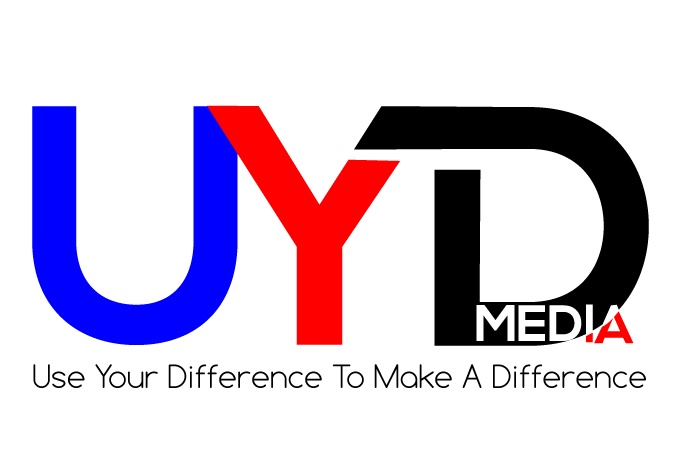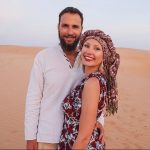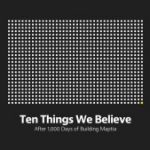Hey everyone! When Tayo asked me to do an entry in UYDmag I was definitely thrilled. As someone from a mixed background, I love especially anything to do with spreading awareness on opening your eyes and mind to different perspectives on culture in the world. Anyways, here is my post!
When the topic of discussion is about being biracial, it’s usually focussed on people that are half black and half white. I am not that mix, so I can not speak from their point of view, nor I am trying to. My father is French-Canadian and my mother is Filipino. My face is a strong mix of both, as I do not look like either of them. People always ask “what are you?” or “what is your ethnicity?” and they guess that I’m Latina, Hispanic, sometimes Lebanese, or half black, or even native, which is fine, I tell them my mix, and it’s always “oh, I couldn’t tell” or “oh, I see it now.” Haha…that last one I don’t really believe but okay.
There will always be things to be grateful for, as well as things that can be more of a difficulty to figure out. I’m not saying that all biracial people have the same thoughts or equal struggles, but this is my experience during my twenty-two years on this earth.
Things that I am grateful for in this biracial life include the culture I was raised in at home. I felt it was a lot of my mother’s Filipino morals, rules, food, family dynamic, mixed with my dad’s humour, laid-back, adventurous side. It’s always been amazing to me to see two totally opposite people, from opposite sides of the world, have such an amazing relationship; I love the example my parents have set for me.

I love the conversations I have with people of different cultures and learning their own cultural norms, family life, experiences and of course, trying their food! I feel that being mixed has made me have a more open mind at a younger age. Of course these things can be experienced by anyone, so I’m not saying it’s exclusive to anyone, I’m just saying I felt that as a younger me, I was more patient to learning how other people do things, that did it differently from myself. Anyways, there are many things I love about my cultural life, and I could list many more of them, but I would like to discuss self-identity and the struggle of deciding who you are as a person.
The main conflict I felt I had to figure out with my biracial self was my self-identity. I grew up in a small town in Alberta, Canada, where majority of the population is white and male, due to the large air force base and booming oil industry. There was definitely a lack of diversity, and it felt like a bubble that was pretty much sheltered from the rest of the world.
I cannot speak either of my parents native tongue fully…only a little bit of both, but not enough to have a conversation longer than five minutes. Thankfully English is taught to everyone in the Philippines, and most Francophones in Canada speak English as well. As I got older though, I realized the importance of language and felt like I missed out on some of my French and my Filipino culture by not knowing either of them. I do not blame my parents however, I know that it probably was difficult trying to teach one language from each parent, and then having to communicate in English to each other, and I know that they did try.
When ever people asked me if I could speak Tagalog or French though, it annoyed me that I had to say no. I was also not sure if I should identify with being Canadian or French-Canadian or Filipino more. I felt like I knew Filipino culture the most, but not being able to speak the language made me feel less connected to my 50+ cousins/Titas/Titos overseas, and the same went for my French side. Am I enough to call myself French or Filipino? If I don’t know the answers to people’s questions, does that make me less of that culture?
Moving to the city helped me decide that yes, I am educated enough, and experienced enough, and love my parents enough to proudly tell people that I am half French-Canadian and half Filipino. I grew up asking my parents enough questions that it was probably annoying, I put my own effort into trying foods, trying to make them myself, and getting the full experience. I have taken classes and read books to learn some background as well as learn the languages, which is still far from good, but it’s getting there!
Do all Canadians or Americans know everything about their own culture? Likely not. Why is there more pressure for mixed people to have to learn both cultures so thoroughly? Do people enjoy asking us questions to see how much we know? I love culture and knowledge, but unless you’re asking me questions to learn or have a discussion, rather than just to see “if I know,” then please take a seat!
I really wish I could go deeper into this topic but I don’t want to write a novel so I will be cutting it here. The lesson I want other people that are biracial to take from this is to be proud of both cultures. Do not belittle one because you think the other is better. It is part of who you are and you must embrace it and love yourself. Learn as much as you can. Ask many questions. Do not take people’s criticisms to heart. Have an open mind.
Thank you for reading my post. Please check out my blog.
Instagram @itsyagirlashley
Twitter @abcdefcote




